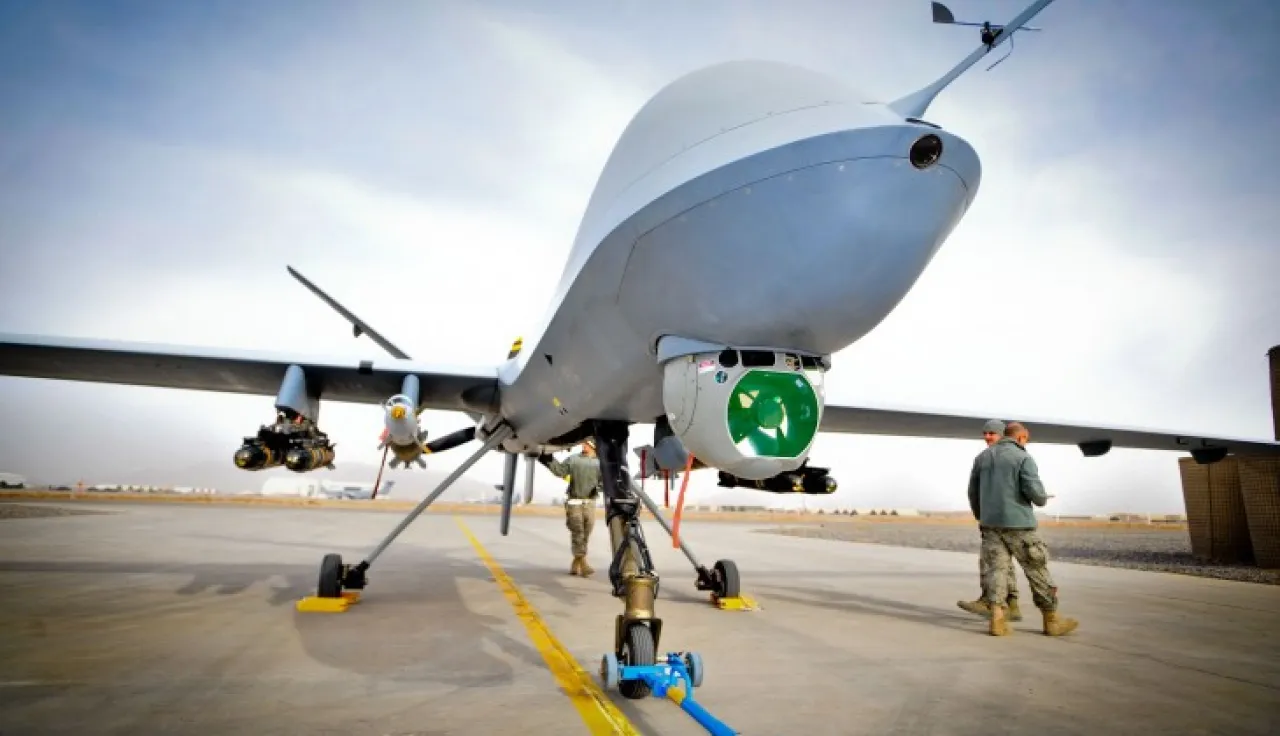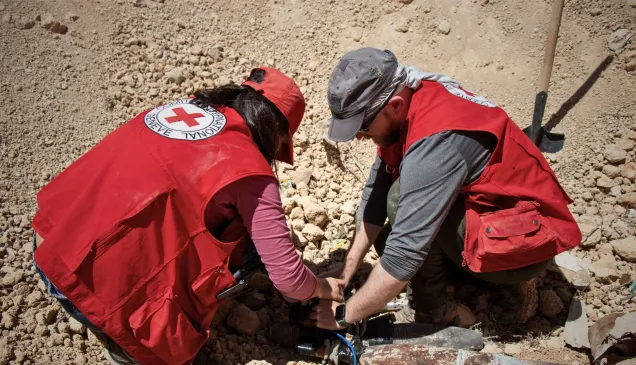Autonomous weapons systems: Profound implications for the future of warfare

In April 2016, head of ICRC arms unit Kathleen Lawand was invited to London to give the keynote address at the annual meeting of the International Committee for Robot Arms Control (ICRAC) Summit, held at Goldsmith University. In her presentation, Lawand presented the ICRC's views on autonomous weapon systems, i.e. weapons that can select and fire upon targets on their own, without any human intervention.
She reminded the meeting that there is broad agreement among States that human control over weapon systems and the use of force must be retained, whether for legal, ethical or military-operational reasons.
The ICRC has called on States to set limits on autonomy in weapon systems to ensure they can be used in compliance with international humanitarian law (IHL) and within the bounds of what is acceptable under the principles of humanity and the dictates of public conscience.
Over the past decade, the rapid development of new warfare technology, notably robotic weapons including drones and autonomous weapons systems (AWS) has presented complex challenges and debates for States, militaries and humanitarian organisations. "The development of autonomous weapon systems has profound implications for the future of warfare," Lawand told participants. "The central issue remains the potential absence of human control over the critical functions of identifying and attacking targets, including human targets. There is a sense of deep discomfort with the idea of allowing machines to make life-and-death decisions on the battlefield with little or no human involvement."
The 2016 ICRAC summit provided a forum for global experts to discuss the ongoing and future status of AWS and their use by States in conflicts around the world. It came just one week after States party to the Convention on Certain Conventional Weapons (CCW) met in Geneva to discuss the technical, military, legal, ethical and security implications of "lethal autonomous weapon systems". The United Kingdom actively participated in the CCW meeting, in which it highlighted the importance of the obligation of States to carry out thorough legal reviews of any new weapon that they produce or purchase, to ensure the new weapons can be used in accordance with IHL. "The very positive spin-off of the discussions on AWS in the CCW is that today States are showing unprecedented levels of attention to their obligation to review new weapons under Article 36 of Additional Protocol I to the Geneva Conventions, which has been under-implemented", said Lawand. The ICRC has consistently reminded States of this obligation, especially in relation to new technologies of warfare such as AWS.
"The Campaign to Stop Killer Robots, of which ICRAC is a founding member, has been very effective in raising awareness amongst governments and the public about the issues surrounding autonomous weapon systems," said Lawand.
However, in her address, Lawand emphasised that the ICRC, for its part, is not calling for a ban or moratorium on AWS at this time. "We are not calling for an outright ban on AWS, but we are calling for more transparency from States about their new weapons technologies," said Lawand. "Information sharing is critical if we are to gain a better understanding of the lessons learned from the use of existing weapon systems with autonomy in their critical functions."
"UK military doctrine states that fully autonomous weapons should never be used and that there should always be a degree of human involvement in decision making," explained Lawand. "The UK government is a key voice in global efforts to promote the implementation of Article 36," said added, referring to a provision under Additional Protocol 1 which requires States to determine whether new weapons, means or methods of warfare maybe employed lawfully under International Law.
Over the past few years, autonomous weapons systems have become an issue of growing concern for the ICRC. In 2011, the ICRC for the first time publicly expressed concern about the legal and ethical challenges of autonomous weapon systems.'
An updated position paper on the issue was submitted at the 32nd International Conference of the Red Cross and Red Crescent in December 2015 and reflects the ICRC's concerns and recommendations to States on their development and use of AWS.



